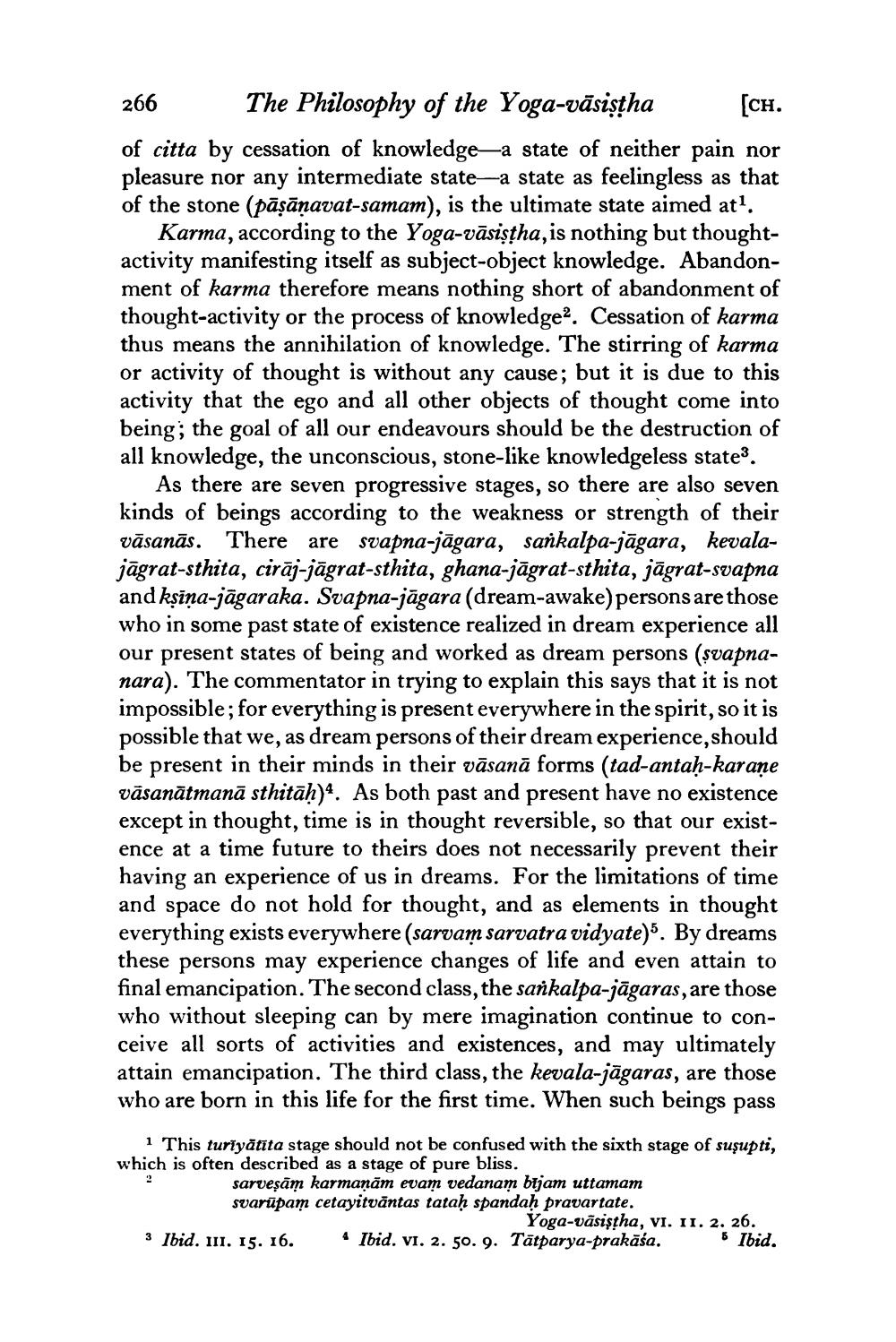________________
266
The Philosophy of the Yoga-väsiṣṭha
[CH.
of citta by cessation of knowledge a state of neither pain nor pleasure nor any intermediate state—a state as feelingless as that of the stone (pāṣāṇavat-samam), is the ultimate state aimed at1.
Karma, according to the Yoga-väsiṣṭha, is nothing but thoughtactivity manifesting itself as subject-object knowledge. Abandonment of karma therefore means nothing short of abandonment of thought-activity or the process of knowledge2. Cessation of karma thus means the annihilation of knowledge. The stirring of karma or activity of thought is without any cause; but it is due to this activity that the ego and all other objects of thought come into being; the goal of all our endeavours should be the destruction of all knowledge, the unconscious, stone-like knowledgeless state3.
As there are seven progressive stages, so there are also seven kinds of beings according to the weakness or strength of their vāsanās. There are svapna-jāgara, sankalpa-jāgara, kevalajāgrat-sthita, cirāj-jāgrat-sthita, ghana-jāgrat-sthita, jāgrat-svapna and kṣina-jāgaraka. Svapna-jāgara (dream-awake) persons are those who in some past state of existence realized in dream experience all our present states of being and worked as dream persons (svapnanara). The commentator in trying to explain this says that it is not impossible; for everything is present everywhere in the spirit, so it is possible that we, as dream persons of their dream experience, should be present in their minds in their vāsanā forms (tad-antaḥ-karane vāsanātmanā sthitaḥ)4. As both past and present have no existence except in thought, time is in thought reversible, so that our existence at a time future to theirs does not necessarily prevent their having an experience of us in dreams. For the limitations of time and space do not hold for thought, and as elements in thought everything exists everywhere (sarvam sarvatra vidyate)5. By dreams these persons may experience changes of life and even attain to final emancipation. The second class, the sankalpa-jāgaras, are those who without sleeping can by mere imagination continue to conceive all sorts of activities and existences, and may ultimately attain emancipation. The third class, the kevala-jāgaras, are those who are born in this life for the first time. When such beings pass
1 This turiyātita stage should not be confused with the sixth stage of suşupti, which is often described as a stage of pure bliss.
2
sarveṣām karmaṇām evam vedanam bijam uttamam svarupam cetayitvāntas tataḥ spandaḥ pravartate. Yoga-väsistha, VI. II. 2. 26. Ibid. VI. 2. 50. 9. Tātparya-prakāśa.
5 Ibid.
3 Ibid. III. 15. 16.




